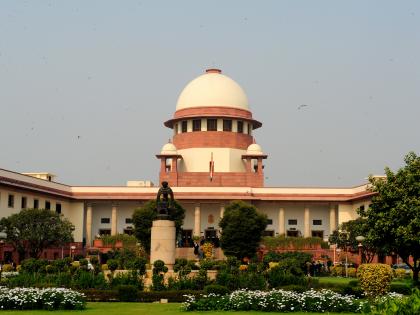“States Have Money for Freebies Like Ladli Behna Yojana, but Not To Pay Judges”: Supreme Court
By Lokmat English Desk | Updated: January 7, 2025 23:47 IST2025-01-07T23:16:33+5:302025-01-07T23:47:27+5:30
The Supreme Court criticised the government's financial stance on paying salaries and pensions to district judiciary judges, saying states ...

“States Have Money for Freebies Like Ladli Behna Yojana, but Not To Pay Judges”: Supreme Court
The Supreme Court criticised the government's financial stance on paying salaries and pensions to district judiciary judges, saying states have sufficient funds to provide freebies to people but claim financial constraints when it comes to judicial compensation.
A bench of Justices B.R. Gavai and A.G. Masih made the remarks during the hearing of a 2015 plea filed by the All-India Judges Association in 2015, which seeks better pension provisions for retired judges. Earlier, the Supreme Court had expressed concern over the "pitiable" pension amounts, with some retired high court judges receiving as little as Rs 10,000 to Rs 15,000.
The Court referred to the Maharashtra government's Ladli Behna Yojna and the promises made by political parties ahead of the upcoming Delhi assembly elections, noting that such schemes offer fixed amounts of money. "The state’s have all the money for the people who don’t do any work. When we talk abut financial constraints we also have to look at this. Come elections you declare ladli behana and other new schemes where you pay fixed amounts. In Delhi we have announcements now from some party or the other saying they will pay ₹2500 if they come to power," Justice Gavai said as quoted by Bar and Bench.
Read Also | Supreme Court directs Jharkhand’s largest oppn party to nominate LoP within two weeks
Attorney General R. Venkataramani, representing the government, responded by acknowledging the need to consider financial burdens but argued that the freebie culture should be viewed as an exception. He emphasized the necessity of weighing genuine financial constraints when determining judicial pay and pensions.
Senior Advocate Parameshwar K., appointed as amicus curiae, argued that the judiciary must have a say in deciding service conditions. He stated that better pay for judicial officers would not only ensure financial independence but also encourage diversity in the district judiciary. "If we want a more diversified judiciary, we need to pay our judges better," Parameshwar said. "First-generation lawyers and those from rural backgrounds must be encouraged to accept judgeships."
Venkataramani countered by saying that the government’s new pension scheme had accounted for various financial factors and the burden on the state exchequer over time. He added that the pension liability had increased significantly in recent years.
Open in app